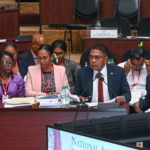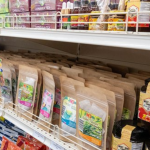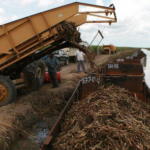Chair, Minister Adams-Yearwood, Colleagues, Ladies and Gentlemen.
I have been invited by the madam Minister’s “Special Events Committee” to give some “brief remarks” during this our ministry’s Emancipation Cultural Programme, to which request I have consented with the greatest pleasure.
Guyana shares Emancipation Day with other Caribbean nations that were formerly British colonies. In reality, it was a matter of slavery being abolished within the British Empire, of which Guyana was a part at the time. Originally, the name of this holiday was “Freedom Day,” but today, the name “Emancipation Day” is usually preferred.
As you are aware, Guyana was originally the home of various Indigenous Indian tribes, but the Dutch started a colony here in the 1500’s. The colony passed back and forth among the Dutch, British, and French several times but finally remained in British hands after they captured it in 1814. It did not become an independent nation until 1966. Much of Guyana’s colonial population was made up of African slaves brought over to work on coastal plantations over a period of some 250 years.
Once slavery was finally abolished in 1834, Guyana’s economy and social structure underwent radical changes. Many former slaves left the plantations and populated villages outside of Georgetown or even went inland to settle frontier locations.
Indentured servants were then brought in from India, China, and Portugal to fill the labour gap on the plantations. Eventually, however, these new ethnic groups also gained their freedom and moved on to other things. The economy diversified to include gold mining, logging, and a more diverse agricultural sector. Trade with other countries also became freer and more profitable.
Thus, while those of African descent were immediately and most directly impacted by the abolition of slavery, in reality, it touched everyone. The event sent the whole nation in a whole new direction and led to greater cultural diversity as well. This diversity has led Guyana to adopt as its national motto: “One People, One Nation, and One Destiny.”
Emancipation Day not only celebrates the anniversary of freedom but also the outcome of the struggle, resistance and sacrifice; and epitomises for freedom, liberation and the resilience of our people. Furthermore, it created the opportunity for the development of the Village Movement, which was responsible for the communities and village structure in modern day Guyana and within which our agriculture sector is built.
As we approach first oil, our agriculture sector needs transformational systems and technology, for a ‘sustainable, productive and climate resilient agriculture along with value added processing’. Our government has started this transformational process through the Green State Development Strategy Vision 2040, where we have outlined the policy direction of agriculture in providing the good life to all our citizens.
This year, as we observe our Emancipation anniversary. I wish to register my satisfaction with today’s event, I am captivated by your enthusiasm, your participation and your beautiful attire. Moreso, I am grateful for all the hard work of the organizers and special thanks must be extended to Minister Yearwood for her leadership in the planning and execution of this event.
Guyana acknowledges its cultural diversity in many forms and also by recognizing the contribution of its various ethnicities through arrival day celebrations for its East Indian, Portuguese and Chinese citizens as well Heritage Month for our Indigenous Peoples in September of each year.
In many ways our celebration today and tomorrow exemplifies and reflect the hopes, dreams, and ultimate successes of the Freedom, Equality and Justice we dreamt of so many years ago.
Happy Emancipation Day to all!




